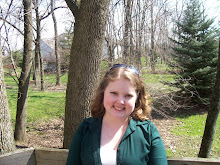So this isn't a religious book per se , but it deals with religious topics a lot so I figured it was worth the time on the blog. Besides, Amy Welborn talks about it on hers, so I guess I can, too!
Crunchy Cons by Rob Dreher, a former National Review staffer, discusses a new ideology (is that the word? not sure) that's developing in America, and has been for awhile. it's not a political movement, but more of a life movement, I guess you'd say, that's on both sides of the political spectrum, but they're "Crunchy Conservatives" because followers of this particular lifestyle tend to vote Republican.
The book answers some questions that I, as a Republican who tries to be as faithful as Catholic as possible, have had lately. For example, being environmentally-conscious without crossing over into the Greenpeace/ PETA/ "environmentalist wacko" club. I mean, God told us we have dominion over the Earth and the animals, but He made them, too, so we shouldn't be abusing them--right?? But I'm a Republican! What gives?
This is where "crunchiness" comes in. Dreher talks about farmers in Texas and Kansas who are devout Christians but run organic farms (something usually associated with the wacko left) because they feel that's the best way to respect God's creation. So the book advocated buying organic food, when possible, or going to farmer's markets for produce, in order to support your local community (community is big to a crunchy con, even more than to "regular" conservatives), but also because the family farm raises things that are (usually) healthier (less pesticides and hormones and stuff like that), plus you're supporting a local family. I have a friend whose family farms, and let me tell you, their stuff is soooo much better than what I can buy at the grocery store, especially their corn. We were over there one night for dinner, and when he suggested we have corn for a side, I thought he was going to rip open a plastic bag, like we do at our house. Nope! We all went into the field behind their house and picked some ears of corn. Let me tell you, best, sweetest corn I have ever had. Mmmm. (But I digress.)
The book also covers homeschooling, suburban living, how Crunchy Cons feel toward big business (that the free market is the best thing we've got going but supports small businesses over massive corporations), and, of course, religion, which is why I can write about it here. :) Religion is important to Crunchy Cons, but it's the authentic application of religion--i.e., trying to live as closely as possible to gospel and religious tenets--that is the big thing. A lot of people in the book say that the biggest problem with the "Religious Right" on the Republican side is that they may pack the churches, but a lot of them aren't putting their money where their mouths are--they live in McMansions and consume, divorce, and do other things at the same rate as the secular culture. Many people Dreher interviews seem to think that there's not an authentic religious application in these people's lives, other than the right's crusade against sexual sins and abortion. I don't know if I totally agree with this, but I will say that a lot of people I know that call themselves Christian seem to leave the religion in the pews, if you know what I mean. Now nobody's perfect (God surely knows that I am not) but we should try to make an effort to live our Christian principles so that we don't get the "woe to the hypocrites" speech when we reach the pearly gates.
Dreher, a Catholic, points out the belief he (and other Crunchy Cons) have in the sacramentalism of everyday. Now as Catholics, we should get that. Everything is sacramental. George Weigel talks about this a lot (esp. in Letters to a Young Catholic ---great book)--we make bread and wine the focus of our worship when they become Jesus' body and blood. Regular, every day items become sacred. It's something we're quite familiar with. That's the way Crunchy Cons feel about the environment, their homes, etc.
I had a few beefs with the book: 1) that suburbia is a soulless place to live and 2) the despair that Dreher and his interview subjects in the 'religion' chapter demonstrated about the Church in America.
1) Yeah, surburban houses can be "cookie-cutter" and a lot of beautiful, old homes in America are in the inner city, therefore they are abandoned by people who fear the location or don't want their kids in bad school districts. Yeah, the suburbs can present a long commute to some people which is a drain on family life. And there's a lack of community. But I've lived in suburbia all my life and I'd like to dispute some points. I didn't find it soulless--sure, we don't talk to our neighbors as much as we used to when we knew them all and when me and my siblings were kids so we played with the other kids around here. But we still talk to them, and wave and do all that good stuff. It's not Leave it to Beaver but it's not The Burbs either. We live twenty minutes outside of Columbus where my father and I work and my brother goes to school. The commute can be not fun, especially coming home, but we're not that far from our family and still have ample family time. Heck, when we were younger, my dad's office was five minutes from our house, if that! And we lived in the suburbs. We don't live in a "McMansion" (as they're called in the book) but our house was built in 1990, not 1890. So it's probably a little less aestheticall pleasing than some of the older homes in Columbus. But we can't afford to live in the swank German or Victorian Village locales, and we're not living on the near East side, where there are some lovely homes but a host of social issues.
2) The despair about the American Catholic Church. Dreher, being Catholic, has a lot to say about this. He feels that the priests have done a poor job catechizing the flock, that the Church fails to present the rich tradition of the faith to the people so they know and appreciate their faith, it's failing to be "countercultural" the way the Church needs to be. In short, that the Church isn't challenging us enough, and it's not a good thing. He does talk about JP II and B XVI in good ways, though, and how they are challenging our consumerist, post-post modern mindset and trying to give us a new "springtime of evangelization", as JP II called it.
I've never been as tempted to despair about the fate of the Church as some. I believe that the future of the Church, as always, is in its young people, and with the tremendous responses to World Youth Days, as well as the popularity of retreats and days for teens in my own dioceses, I am encouraged by what I see. I have a friend whose my age and is on parish council. I'm in my choir and on the Spiritual Life Committee. My little sister loves her youth group. Two or three yougn men from my parish are in the seminary, and another friend of mine from (Catholic) grade school is thinking about entering the priesthood, as is his brother. All of us are devoted to our Church, showing great energy and spirit, and a hunger for what the Church teaches and how to live it in our lives. As Ghandi said, "we must be the change we wish to see in the world." If we want a return to the old ways, the old values, if we want to inject a new spiritiuality and vibrancy into our churches, we have to work for it. We have to push to find that community. It can be tough--we've got pastor and bishops in America that may be less than willing to move out of the status quo. But it's worth it. We've got to try it, anyway. And I think it can be done.
Crunchy Cons is a good read if you, like I, have often wondered how to reconcile your political beliefs with your spiritual ones, or if you're a Republican who has ever received the Look of Shock when you've said you're against the death penalty (like I am). Even if you're not a conservative, it's still a good read.
Subscribe to:
Post Comments (Atom)



1 comment:
Just finished the book myself. I'm a conservative, and a conservative Catholic and it was a very interesting read!
Nice blog. :)
Post a Comment